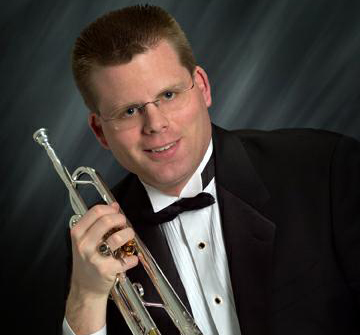This tip for new music educators comes time proven based on my many years experience as a middle and high school band director, and fine arts administrator. Imagine the setting: you have just prepared your band room for what you expect to be a fantastic rehearsal. Chairs and stands are set neatly, your rehearsal plan is written on the board, music and folders are distributed, you have prepared your scores, and you anxiously await the ringing of the class bell at which time your students will come through the door excited to play!
There is the usual albeit brief chaos as the students arrive, assemble instruments, ask to use the lavatory, expect you to fix their broken key or misaligned valve, then finally get settled in their seats. Now they are yours, and you are ready! Warm-ups begin, and you detect a pleasing sound that makes you more excited to move to rehearsal of the repertoire. Referring to the marker board, you call out the first piece. “Students, we are going to begin rehearsing at measure 65.” You lift your baton, and lead the ensemble to what is quickly an incredible, and most wonderful MESS!
How can it be? You had assigned the students to practice this section individually in preparation for rehearsal. What you hear now is a most grotesque combination of noises that couldn’t possibly come close to resembling music; rather, they sound more like a thousand garbage trucks unloading rubbish at the same time! Your rehearsal plan is destroyed, and you spend the next 20 minutes of precious time from your short rehearsal trying to piece it all together. Finally, you feel yourself becoming hot under the collar, and loudly begin admonishing the students. “I am not happy,” you say. “I expected you to practice, and it is clear that you did not. Put the music in your folders, take it home, and practice it again!”
The day after, the next band rehearsal arrives. Once again, you have prepared your band room for what you are convinced really will be a fantastic rehearsal this time. Chairs and stands are set neatly, your rehearsal plan is written on the board, music and folders are distributed, you have prepared your scores, and you anxiously await the ringing of the class bell at which time your students will come through the door excited to play!
By now you get the picture of what is sure to follow. Here is the problem: did you ever teach your students how to practice? You will discover in your career that there are many musical concepts and terms that we expect everyone knows, and we take for granted that students know when actually they truly do not understand. Ask students how to practice, and most will tell you they just play the exercise or passage over and over again until they think they got it right. But you and I know that if they had it wrong, they simply reinforced wrong. Try breaking that habit!
Practice involves breaking any musical passage down note by note, measure by measure, phrase by phrase. It means dissecting and counting rhythms, singing and playing each pitch, putting little parts together toward eventually having the whole mastered. Attention is paid to tone production, articulation, melodic and rhythmic accuracy, ornamentation and interpretation. Teach your students how to do this! Demonstrate too! I guarantee that they will have more success and you will be less frustrated. Watch motivation of students increase too. They will accomplish more in rehearsal with you, enjoy more of what they perform, and come to trust and respect you more as well. This will then lead to better retention of students, and create program growth.
Because, like so many of you, my teachers inspired me as a teacher, I would like to thank Professor of Music Emeritus Robert F. Zellner of Gettysburg College for teaching me the value of “tell them how” so many years ago.
About the Author
SCOTT ABRAHAMSON is an Alumnus of Gettysburg College (PA) having earned a Bachelor of Science in Education from the University of New England (ME). Additionally, he has completed post graduate study at the Hartt School of Music, University of Hartford (CT), Rhode Island College, the University of Phoenix (AZ) and Loyola Marymount University (CA). Although a classically trained trumpeter, Scott has proven versatility in a range of styles, and has performed extensively throughout the East Coast. His trumpeting has also taken him to the Mid-West, Canada, and Europe. As a freelance musician in Southern New England, Scott’s forte has been within the realm of sacred music. He remains demand as a wedding trumpeter, can be heard regularly as the Trumpeter-in-Residence at the well- known St. Luke’s Catholic Church in Barrington, RI is a past member of the Ocean Stat Pops Orchestra, and now performs with both the Greenwich Bay Brass and the Lakeside Brass Quintet. Most notably, Scott is proud to be a Trumpet Artist/Educational Clinician for Jupiter Band Instruments, Inc, a leading manufacturer of world class quality instruments.
The content of this Blog article or Banded Story is the intellectual property of the author(s) and cannot be duplicated without the permission of KHS America and/or the author(s). Standard copyright rules apply.



 We look forward to the evolution of this exciting program, and welcome feedback on how we can further enhance the work that you do in music education.
We are excited to offer your program the opportunity to join the KHS America Academic Alliance today.
We look forward to the evolution of this exciting program, and welcome feedback on how we can further enhance the work that you do in music education.
We are excited to offer your program the opportunity to join the KHS America Academic Alliance today.